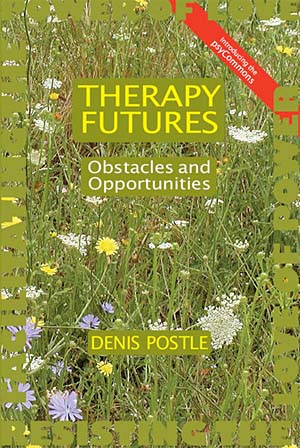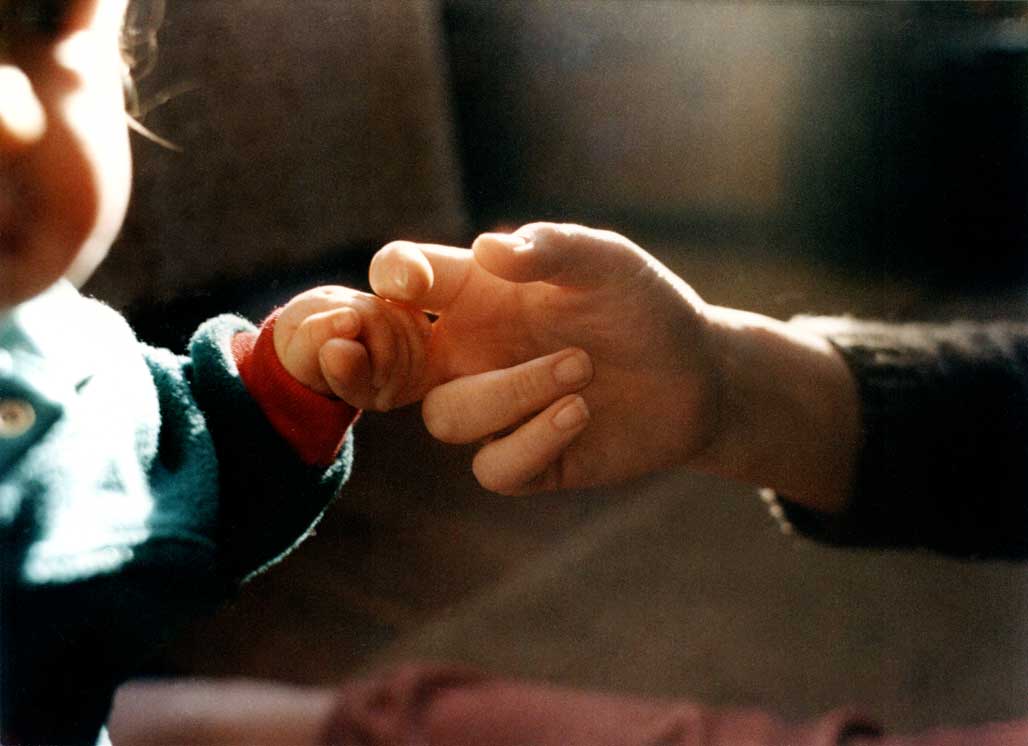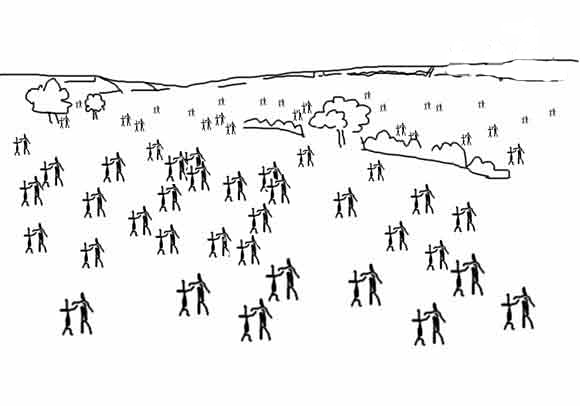| Available now £12.99 from Lulu.com Therapy Futures - Obstacles and opportunities - introducing the psyCommons by Denis Postle Therapy Futures explores the heart and soul of therapy – how might therapy reach out and be refreshed, Denis Postle asks? Therapy Futures introduces two essential elements for therapy renewal, one is valuing love as the active ingredient of therapy and second, recognizing that we all inhabit a psyCommons, a thriving fountain of streetwise, savvy ‘know-how’, ‘know-when’ and ‘know-if’, through which millions of people get through life. Therapists distil expertise about the human condition from the psyCommons and sequester it in professions. Therapy Futures tells how the militantly professionalizing tendency within the psychological therapies relentlessly sought state backing for these professional enclosures, and how this ambition failed. The case study that narrates this history is a story of mutual disrespect, ‘couch wars’ between rival psychological fiefdoms, tribes and trade associations – with practitioners, who in their work espouse care and trust, at the same time fighting each other for self-interested professional advantage. At the same time there was a notable failure to see that the government agency they were courting was a toxic institution – and we have all had a narrow escape from capture by it. These power-driven contests for terrain look set to run and run, but do they have to? Therapy Futures outlines an alternative, a transition that waves goodbye to professionalization and moves towards forms of psycho-practice based on inquiry, equipotency and love. |
 |
| eIpnosis - a change of direction |
|
eIpnosis has shifted emphasis from resisting state regulation of the psychological therapies to championing new and existing ways of approaching 'human condition work' and 'civic accountability' post state regulation. This is a new beginning. While there are several established projects and initiatives, we are in discovery and exploratory mode. If you would like to contribute, get in touch. |
| Are you feeling lonely, isolated or unsettled in your life as a practitioner? Have you recently finished, or will soon complete, a training in working with the human condition?* Or have you been working long enough to appreciate why it is important to have a form of practitioner civic accountability that matches your values? Perhaps it is time to check out the Independent Practitioners Network [IPN] a national gateway to practitioner communities based on peer review. IPN consists of self-directing groups of five-eight practitioners plus external validation, organised via low/no hierarchy network structures. To get to know the IPN culture, and to find out how to sign up as a participant, join an existing IPN group, start a new IPN group, or convert an existing group, see the IPN website or email eIpnosis *aka psychotherapy, counselling, facilitation, coaching, bodywork, meditation, massage, etc |

| A unique digital resource for Personal and Professional development |
| Honouring the Psychological Commons: Peer to Peer Networks and Post-Professional Psychopractice An eIpnosis Review March 8, 2010 |
 |
| As the Regulation of the psychological therapies in the UK moves towards an endgame, eIpnosis attention has turned from resisting the Health Professions Council's [HPC] codification of the ineffable strands of working with the human condition, to re-stating, exploring and developing what we value and trust.
Foremost among this for eIpnosis has long been the notion of a 'Psychological Commons', an abundance of psychological knowledge and practice that has been more or less freely available for decades. |
|
THE INDEPENDENT PRACTITIONERS NETWORK The article begins with a brief account of the political context out of which IPN emerged and moves on to outline the IPN process of holding civic accountability. This is followed by accounts of how network coherence and cohesion are sustained and IPN's basic protocols. How IPN provides civic accountability for psychological work is described, along with some of the values that inform IPN. I conclude with a short account of an IPN group meeting, some consideration to what I might have left out, and end with a Q&A listing. |
|
V I D E O S
What might be core values in our field? How might we build civic accountability for our work around them? |
This video version of an introduction to IPN was originally given at the IPN 2006 Conference. Part 1 deals with why IPN is a good idea.
This video version of an introduction to IPN was originally given at the IPN 2006 Conference. Part 2 deals with the practicalities of participation in IPN Validity In the Psychological Therapies - Why Love Provides a Better Benchmark Than Science.
eIPnosis has long argued that the underlying model of human nature that we adopt, or have sold to us, has a deep formative influence on our present preferences and actions. Behaving Ourselves, a video I made for C4 featuring historian of science, Professor Robert Young, Steven Chorover and Donna Harraway, looks at some of the ways in which our ideas of human nature are shaped. 54 mins
|
| IPN may be a good way to undertake civic accountability for psychological therapy practitioners but it isn't the only way. An alternative is a Practitioner Full Disclosure List [PFDList]
See my original 2003 proposal, recently retitled and updated as a demo web-site thelist.info Here (below) is a video presentation of thelist from the November 2009 Alliance Conference, that includes discussion by some of the people developing a pilot PFDList for counsellors and psychotherapists in the Bristol area that will shortly go out to tender. A parallel, highly authoritarian proposal for 'functional' regulation of all psychological therapists via a PFDList appears in the Maresfield Report from the psychoanalytic community. |
